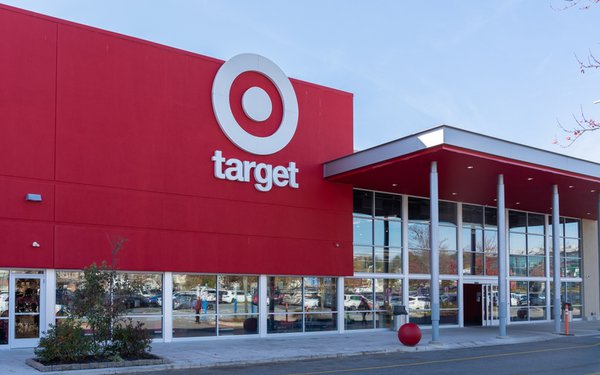
Target’s decision to
scale back DEI efforts has made it a flashpoint in a growing consumer battle, with NAACP and faith-led boycotts adding new economic pressure. And the fallout may not stop there -- the NAACP is also
calling out Walmart, Meta and McDonald’s.
With a well-organized boycott against Target already underway, the NAACP has just filed a suit against the Trump administration about DEI
rollbacks. And the organization is urging Black consumers, whose purchasing power exceeds $1.8 trillion annually, to "spend intentionally and demand accountability."
“We're done with
empty and broken promises,” said Keisha Bross, director of opportunity, race and justice, in the announcement. “This is a call for corporations and individuals to buy into the values and
principles that reflect our interests.”
advertisement
advertisement
The NAACP’s statement follows stepped-up calls from faith leaders, with Bishop Reginald T. Jackson leading a call for a boycott of Target
from the historic Metropolitan African Methodist Episcopal Church in Washington, D.C. Other prominent figures, including Atlanta Pastor Jamal Bryant, have echoed the sentiment, organizing a 40-day
"fast" from shopping at Target. The movement gained traction quickly, with 50,000 people pledging support in the first week alone. On social media, activists promote a one-day spending strike from
midnight Feb. 27 to Feb. 28, urging consumers to demonstrate their economic power.
LGBTQ activists are also organizing, with Twin Cities Pride removing Target as a corporate sponsor and
quickly securing $50,000 in replacement funding from donors.
So far, Target has not commented. It’s hard to say how significant an impact the outrage is having on the company.
Target’s stock traded at $142 per share before making the announcement last month and has since fallen $131. Such fluctuations are usually short-lived and often can be attributed to multiple
factors.
Usually. However, the company’s latest quarterly results already reflected broad weakness in a “volatile operating environment,” with comparable sales falling
1.9%. (Total sales rose 0.9% to $25.23 billion.) The Minneapolis-based company will report fourth quarter and full-year results on March 4.
And while Target rolled back DEI efforts for fear of
conservative backlash, it may be stung by liberal shoppers.
But looking beyond the bogeyman of dueling boycott threats and potential investor lawsuits, many experts maintain that diversity and
inclusion are here to stay, no matter how they package the concepts.
Companies like Delta, Costco, Apple, and Microsoft have resisted and promised to stand by hiring and management practices
designed to promote a more diverse workforce.
“This reaction is emerging, and we’re seeing it at companies like Chase, Apple and Cigna,” says Valeria Piaggio, global head of
sustainable growth and transformation practice at Kantar.
She is confident DEI defenders will continue to come together in various ways. “Companies need to grow, and to increase sales,
they must reach out to high-growth segments, which means diverse populations. They need inclusive marketing to do that,” she says. “And you need internal DEI to effectively service the
diversity of the marketplace.”
Costco’s defense of DEI strategies is a case in point, with shareholders roundly defeating a conservative proposal that the retailer retreat.
“Costco is an extremely successful company, strong inside and out. Management is respected, employees are well remunerated, and members are extremely loyal – all because of the
company’s commitment to diversity.”
She tells Marketing Daily that Target is more vulnerable. “That company’s problems with conservatives go back further, even
beyond the uproar over Pride merchandise in 2023,” she says. In 2016, the company faced intense backlash over its inclusive bathroom policy, which hurt operating results.
She says
Kantar’s latest Kantar Monitor DEI research, fielded in December, asked consumers how they would react if a company reduced DEI programs. Most – six out of 10 – responded that they
would not be affected. And only 7% of surveyed adults said they would consider boycotting the brand. However, that rises to 10% of Black respondents, 9% of people with a household income of $75,000 to
$99,000, and 8% of those earning more than $100,000.
The real risk, however, is negative perception. Overall, 18% of respondents say DEI cutbacks would make them think negatively about the
brand, rising to 23% of Hispanic respondents, 22% of Black respondents, and 22% of Gen Z respondents over 18.
“This is telling,” Piaggio says, “given young adults and
diverse high-growth segments are key for the brands’ future growth.”
And it could be especially troublesome for Target, which has aggressively courted Hispanic, Black and Gen Z
consumers for years.
Adding to Target’s woes, Anne and Lucy Dayton, heirs of the Dayton family that founded Target, published letters to the editor in both the L.A. Times and the
Financial Times, denouncing the company’s new policy.
“We are alarmed how quickly the business community has given in to the current administration’s retaliatory
threats. It is not “illegal” for a company to create a business model based on what it believes to be important ethical and business standards,” they wrote. “By cowering,
Target and others are undermining the very principles that have made their companies a success.”